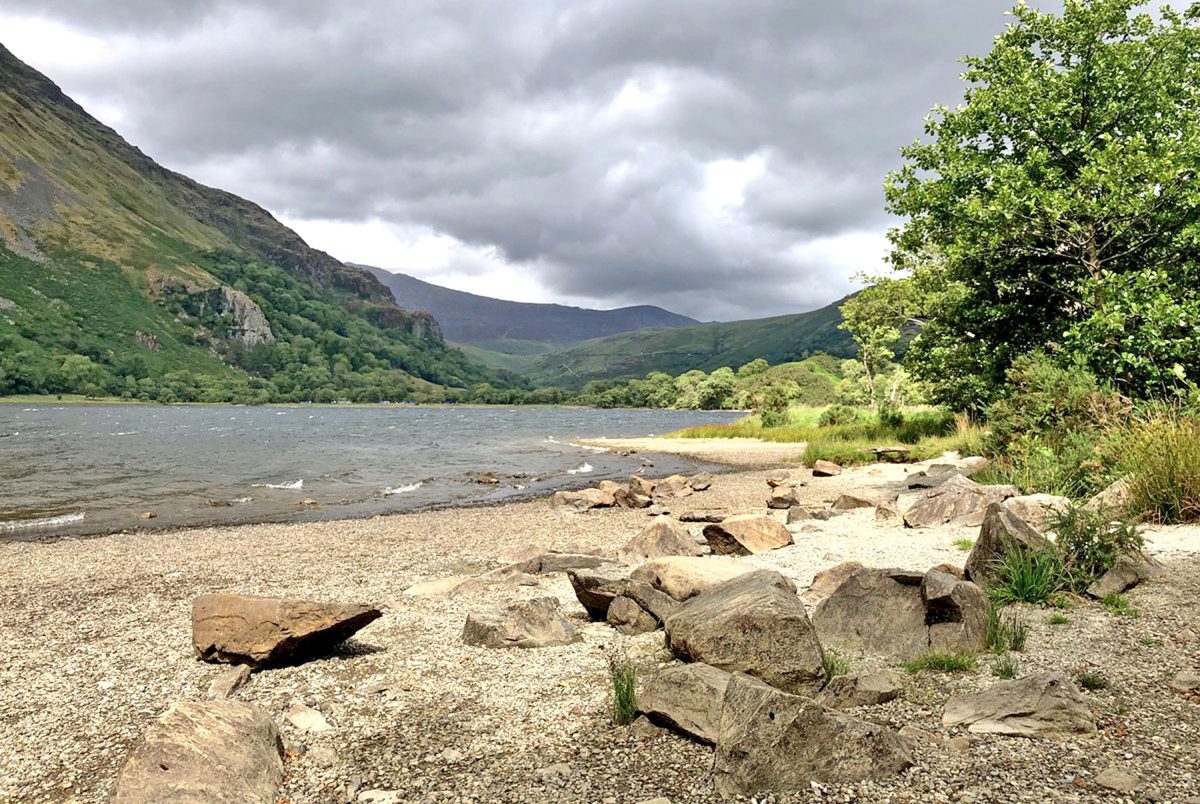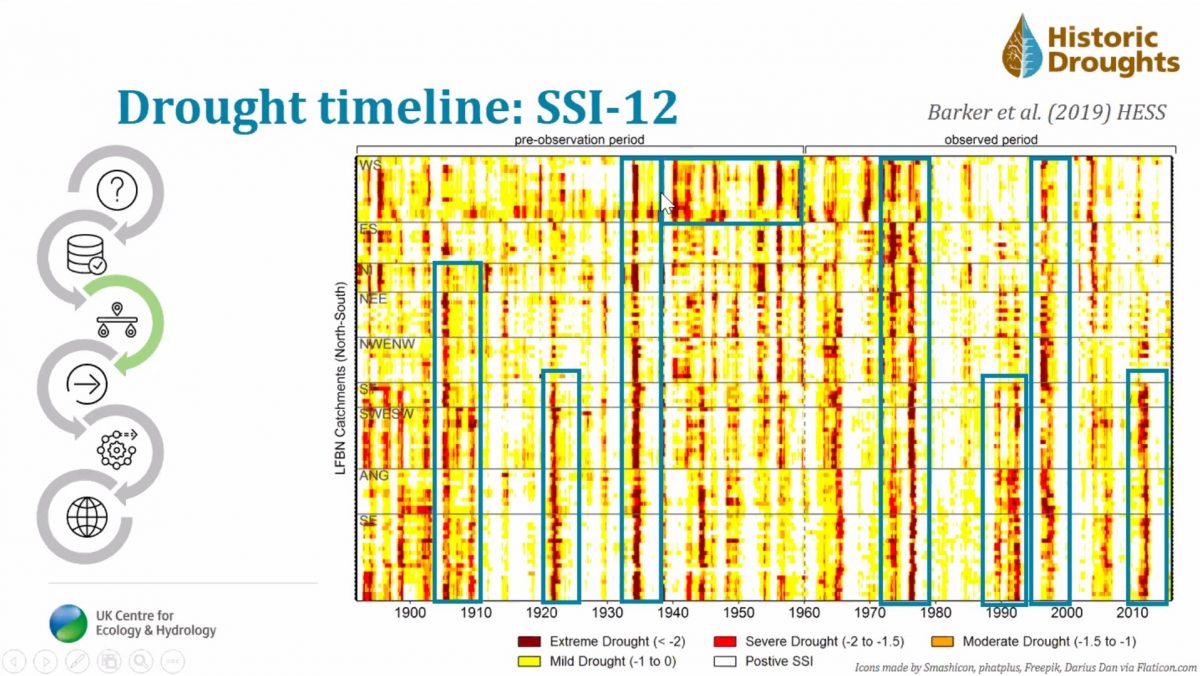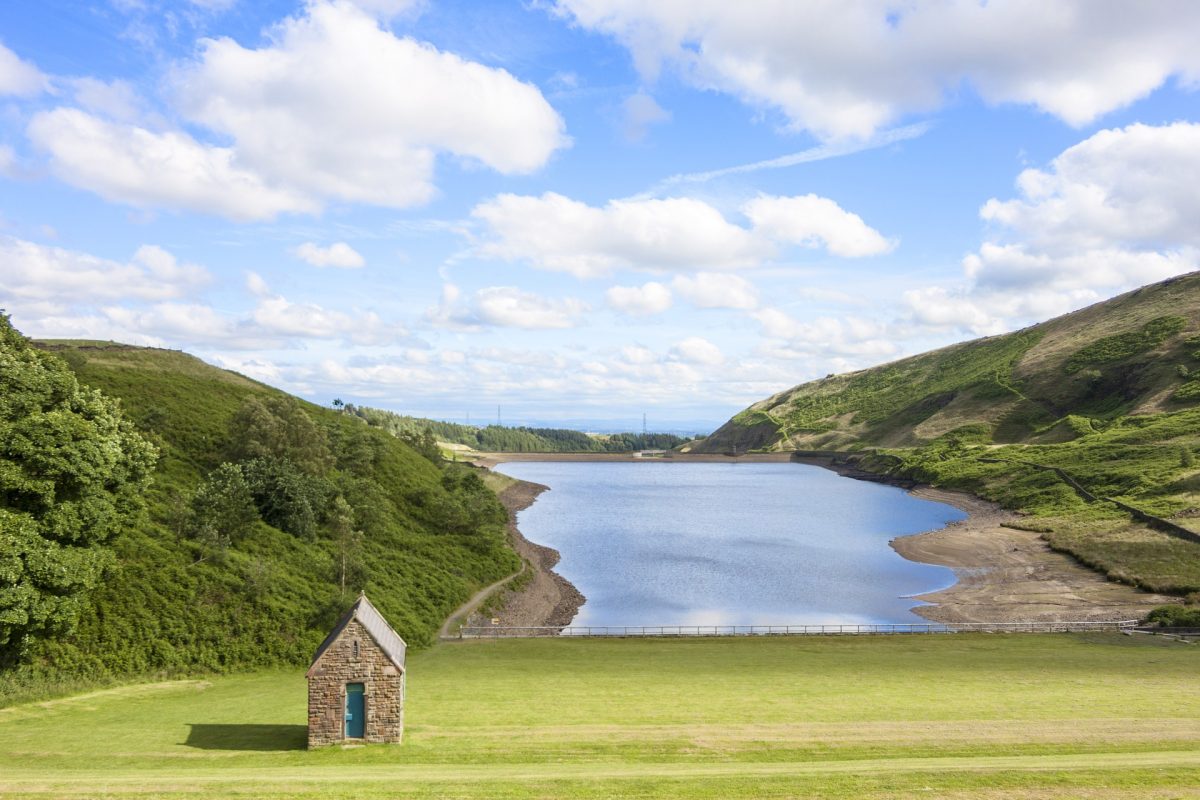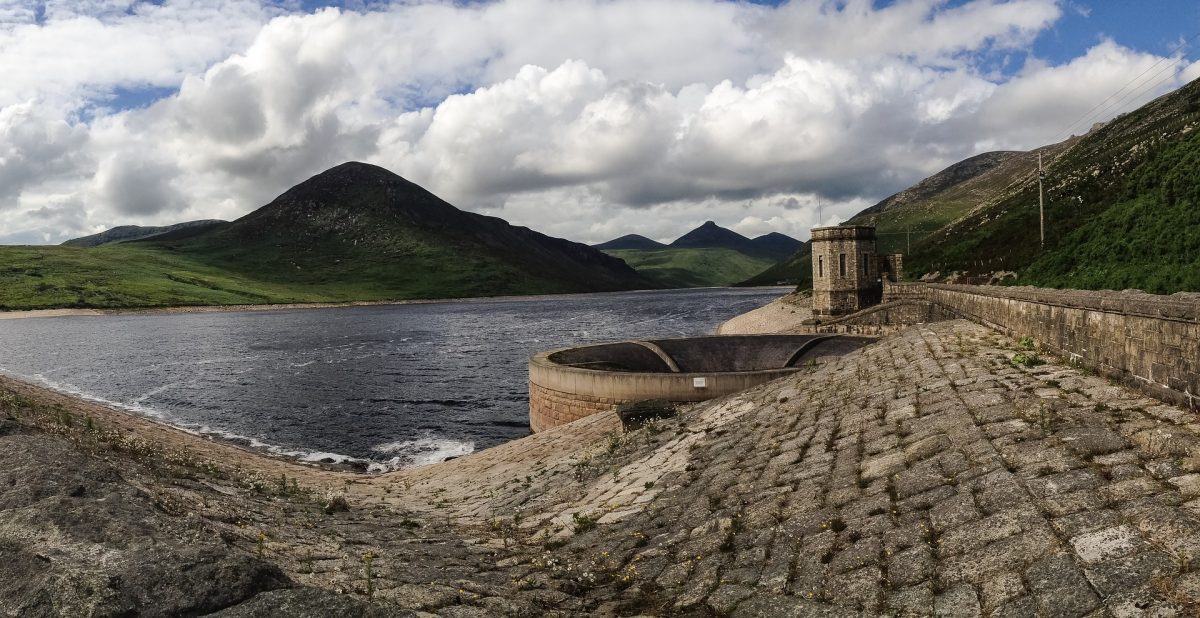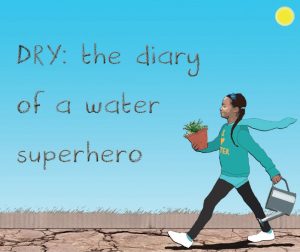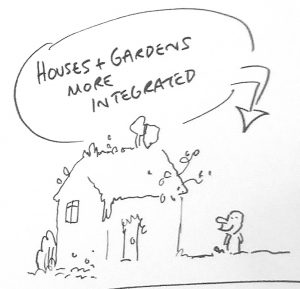There are a number of educational resources developed through the DRY project and About Drought programme which span the breadth of the curriculum. For more information visit the DRY Utility Learning pages.
KS2 – DRY: The Diary of a Water Superhero
A bright, engaging story book has been produced for use in primary schools, with accompanying teacher’s notes and is due for publication later this year (2019). Designed to inform children to become champions to change behaviour, ‘DRY: Diary of a Water Superhero’ follows the story of an ordinary schoolgirl who becomes a water hero during a drought in the UK. The thought-provoking storyline encourages class discussions on how we treat water and how we can all save water as well as including activities.
The book, its concept and storyline were co-produced by Prof Lindsey McEwen, Luci Gorell Barnes, Verity Jones, Sarah Whitehouse and Sara Williams as part of About Drought, with illustrations by Luci Gorell Barnes.
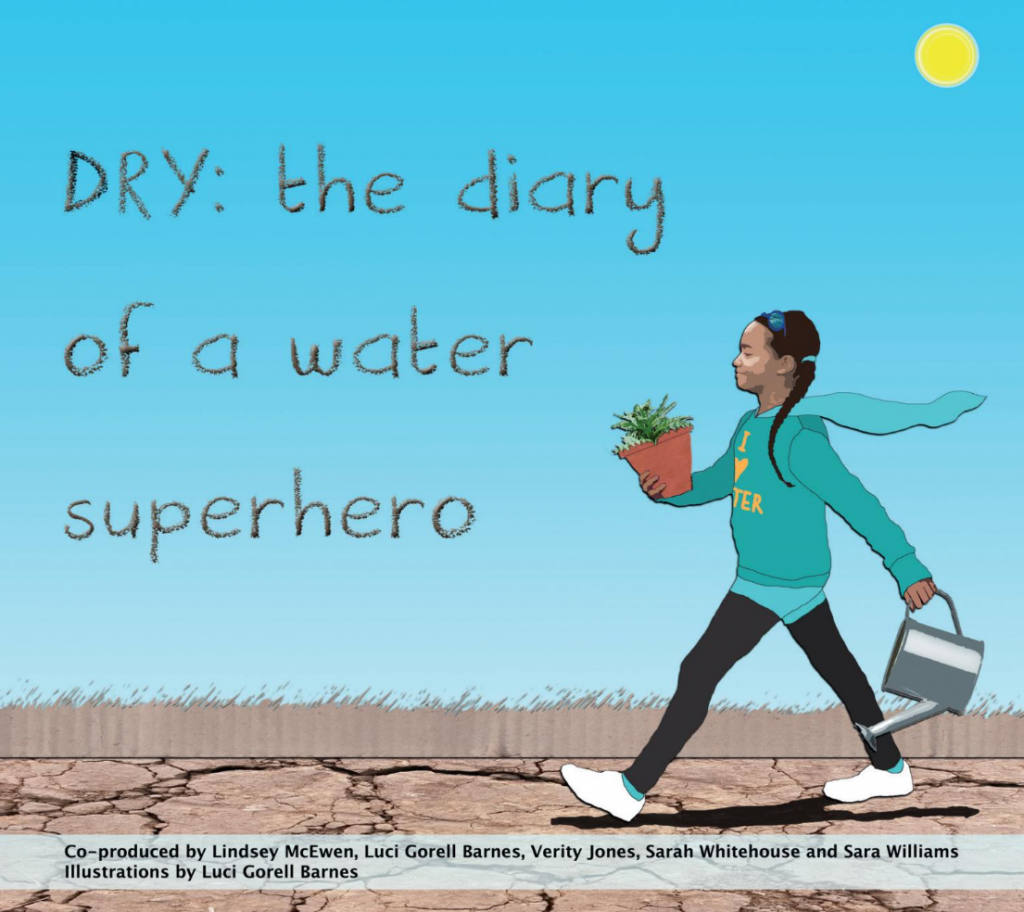
The e-book, DRY: Diary of a Water Superhero is available to read online in English and Welsh
The book is also free to download in both English and Welsh.
The writing team have also run a couple of webinars to introduce the DRY Primary book resource – one for ‘educators’ and another for ‘parents and carers’.
Teachers’ Notes which accompany the DRY Primary Book were also developed.
KS3&4 – All About Drought Geographical Association resources
The DRY and About Drought programme have collaborated with the Geographical Association to develop research-informed resources that promote awareness of UK drought among young people. This includes creative thinking about positive water behaviours at home and in school, and adaptation to future drought.
We have worked with educational developer, Gemma Mawdsley to develop six lesson plans and learning resources for Key Stages 3 and 4 which are available from the Geographical Association.
For older students: Water Futures
Water Futures is an interactive visualisation tool stringing together several different models, which allows users – including students under guidance – to explore how water resources move throughout London. Models in general allow researchers, engineers and decision makers to envision different possible scenarios or outcomes. The models used in this tool are from Thames Water, a weather model from the University of Bristol and a water resources model from the University of Oxford called the WATHNET model. Water Futures was developed by the MaRIUS project working with Thames21, a community project that aims to provide education, improve rivers and improve the quality of life of people in the community by enhancing waterway environments.
Conversation starters: Understanding ‘Hidden’ or ‘Embedded’ Water
When thinking about personal water use, it is important to differentiate between direct water use and use of ‘virtual’, hidden or ‘embedded’ water in the growing and processing of the food we eat, the clothes we wear, and the items we use in our daily lives. The DRY project used the ‘hidden water’ quiz as a ‘conversation opener’ to engage children and adults about water behaviours – as a way in to talking about experiences of dryness and drought.
Food water challenge questions
Food water challenge teachers notes
The DRY project found that this quiz was particularly popular with school teachers and those running scout and brownie groups.
For more information about these materials and many more produced by the DRY project please visit the DRY Utility.


